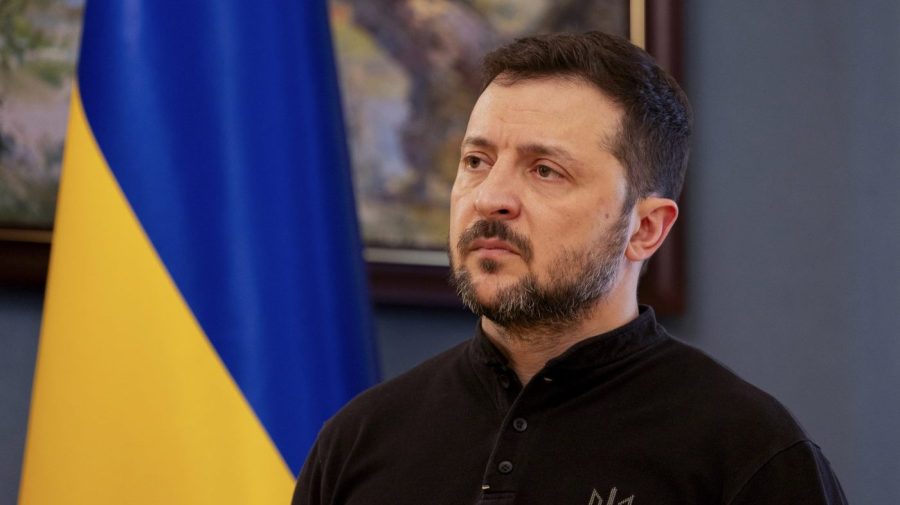
The recent public clash between President Donald Trump and Ukrainian President Volodymyr Zelensky has reignited debates about Zelensky’s role in the outbreak of war with Russia. A classical realist analysis provides the best framework for understanding both the conflict and Zelensky’s role in it.
Simply put, the classical realist framework holds that, in an anarchic international system, where no central authority enforces order, states must rely on their own power for survival. It further holds that an important consequence of this reality is the “security dilemma” — a dynamic that emerges when one state’s attempts to enhance its security are perceived as threats by other states, triggering cycles of mistrust and escalation. These systemic pressures, combined with flawed leadership — marked by ambition, hubris and miscalculation — tell us much about how manageable crises can spiral into devastating wars.
The unfolding tragedy in Ukraine provides a powerful case of this dynamic, revealing both the role played by the insecurities of the various players and the role of human agency, especially that of Zelensky, in triggering the war.
Some in the West have elevated Zelensky to the status of a 21st-century Churchill — a wartime leader standing resolutely against tyranny. But this comparison is misleading. Churchill confronted an existential threat from a power bent on global conquest. Zelensky, by contrast, operated in a context where diplomatic alternatives existed. His refusal to take these off-ramps, both before and after hostilities began, reflected a dangerous mix of incompetence, misunderstanding, overconfidence and nationalist fervor. Realism reminds us that while anarchy and the security dilemma create conditions for conflict, it is human agency that often converts these structural tensions into war.
The structural dynamics of the post-Cold War order progressively created the preconditions for the war in Ukraine. NATO’s relentless eastward expansion, though framed as the desirable expansion of the liberal-democratic space, triggered deep-seated Russian insecurities. In an anarchic system, where no higher power guarantees state survival, Russia interpreted this expansion as a threatening encroachment.
The critical juncture came at NATO’s 2008 Bucharest Summit, where Western leaders declared that Ukraine and Georgia would eventually become NATO members. Realists recognize such commitments as destabilizing; absent credible security guarantees, they heighten the security dilemma. For Russia, Ukraine’s NATO ambitions crossed a red line. Zelensky’s subsequent pursuit of these objectives, despite Ukraine’s limited strategic leverage, reflected a profound misreading.
The 2014 Maidan uprising exemplified the interplay between systemic pressures and human agency. While the West celebrated Maidan as a democratic victory, realists viewed it as a direct challenge to Russian regional influence. Russia’s response — annexing Crimea and fueling conflict in Donbas — was thus predictable.
The resulting insecurity intensified the regional security dilemma. Successive Ukrainian administrations, including Zelensky’s, failed to implement the Minsk agreements, which could have mitigated tensions. Their reluctance, driven by nationalist fervor and Western encouragement, eliminated potential off-ramps and further entrenched the path toward conflict.
Zelensky’s election in 2019 presented an opportunity to recalibrate Ukraine’s strategic posture, yet he doubled down on NATO aspirations and closer ties with the West. In doing so, he not only underestimated Russia’s willingness to act but also overestimated Western resolve. Realism emphasizes that misperceptions of power and resolve are among the most dangerous drivers of conflict. Zelensky’s decisions demonstrate how human agency — colored by ambition, flawed assumptions and a poor reading of geopolitical realities — transforms structural tensions into war.
Zelensky’s domestic policies further aggravated these tensions. By marginalizing the Russian language and alienating Russian-speaking populations, his administration deepened internal divisions that Russia could exploit. In realist terms, domestic politics and international security are interconnected. Nationalist impulses can heighten external threats. Zelensky’s assumption that Western rhetorical support would shield Ukraine from Russian retaliation revealed not only hubris but also a critical misunderstanding of Western strategic interests.
The fog of war further shaped outcomes. Early in the invasion, peace talks in Istanbul presented an opportunity for a negotiated settlement: Ukrainian neutrality in exchange for security guarantees and Russian withdrawal. Zelensky’s decision to walk away from these negotiations, influenced by Western leaders offering conditional support, reflected both hubris and misunderstanding. Leaders, driven by ambition or misperceived leverage, often overestimate their strategic position during crises, foreclosing diplomatic exits and prolonging suffering.
Western complicity in this tragedy cannot be ignored. Western leaders championed Ukraine’s right to choose its alliances but failed to provide the necessary backing to deter Russian aggression. Their strategic ambiguity — a hallmark of great power politics — emboldened Zelensky but left Ukraine exposed. Realism teaches that great powers act according to interests, not sentiment. Russia recognized this, but Zelensky did not.
Ultimately, this war did not have to happen. The interaction of systemic pressures with human flaws drove Ukraine into conflict. The pre-history of this conflict — marked by provocative Western promises, Zelensky’s strategic overreach and Russia’s insecurities — demonstrates how human agency, when misaligned with structural realities, can transform tension into crisis and tragedy. Zelensky’s failure to take available diplomatic off-ramps turned a manageable crisis into a prolonged tragedy.
This war, then, is not merely the result of impersonal structures. It reflects the enduring relevance of classical realism’s emphasis on human nature and the leadership skills of key players. Unlike Churchill, who had no diplomatic alternatives, Zelensky had options. His inability to navigate the structural dynamics of an anarchic international system, compounded by his personal shortcomings, sealed Ukraine’s fate.
As long as ambition, fear and misunderstanding persist — intensified by the insecurity inherent in the anarchic international system — war will remain a tragic but predictable feature of human affairs.
Andrew Latham is a professor of international relations at Macalester College in Saint Paul, Minn., a senior fellow at the Institute for Peace and Diplomacy, and a non-resident fellow at Defense Priorities in Washington, D.C.












